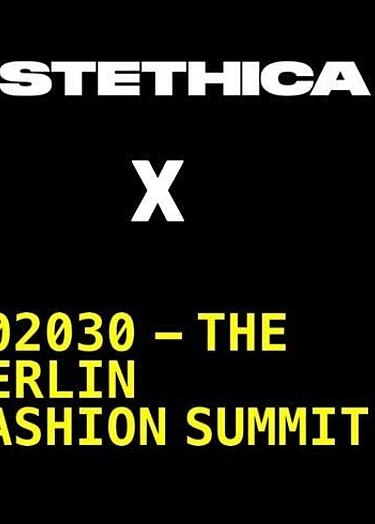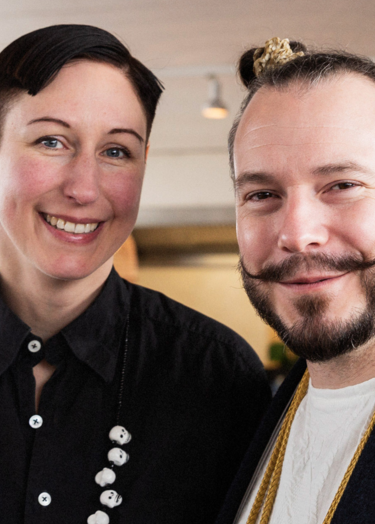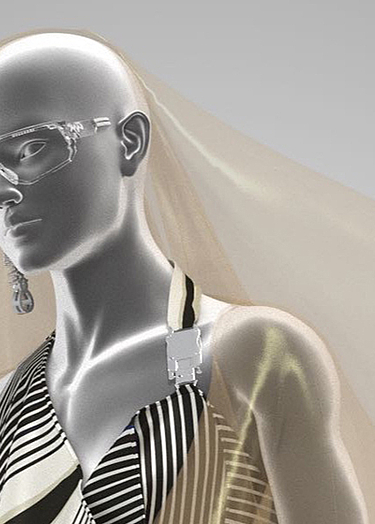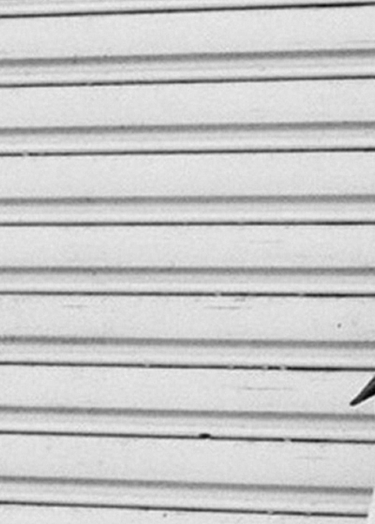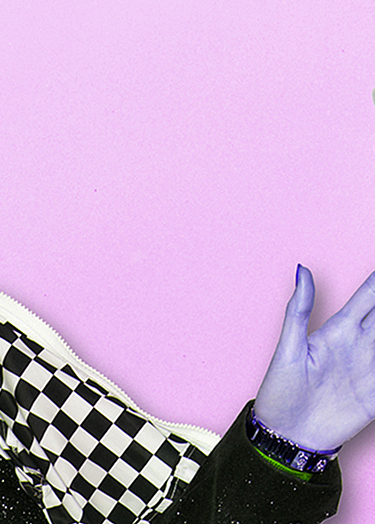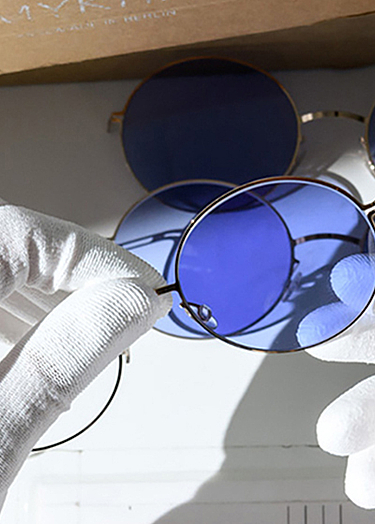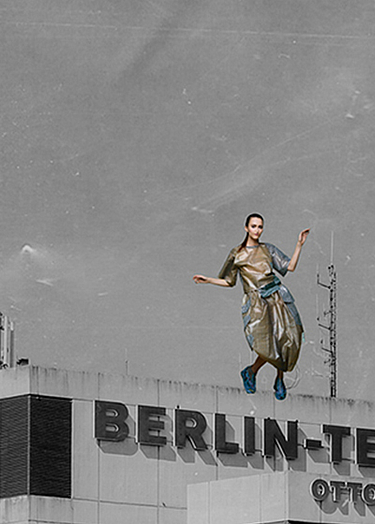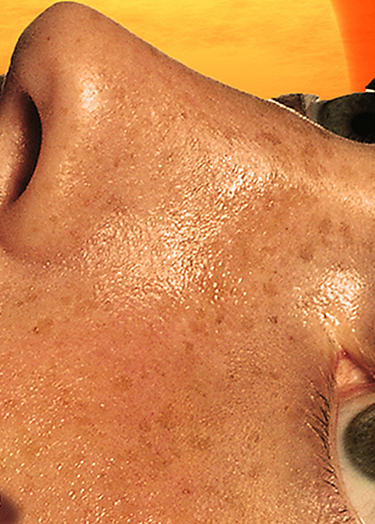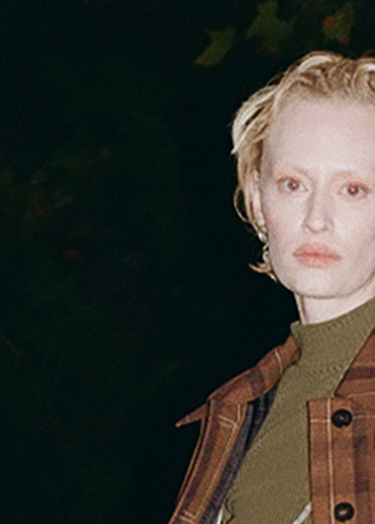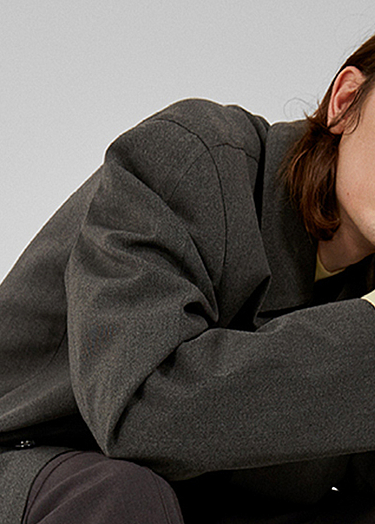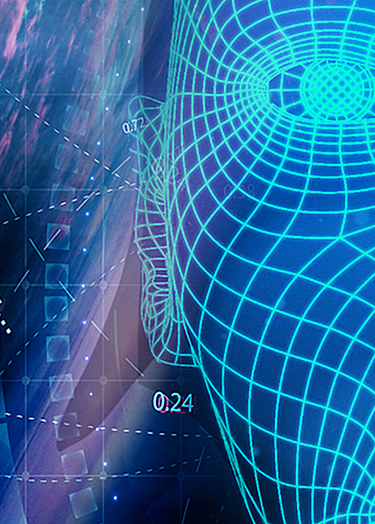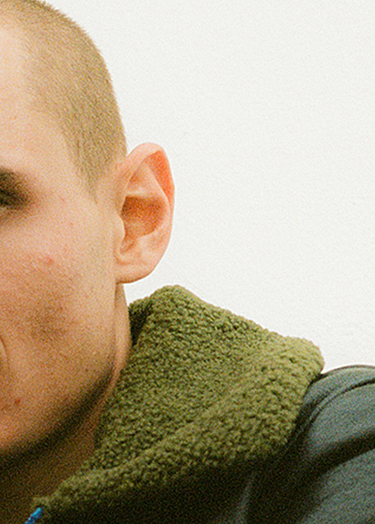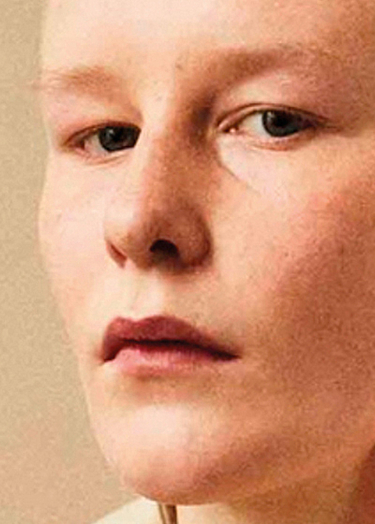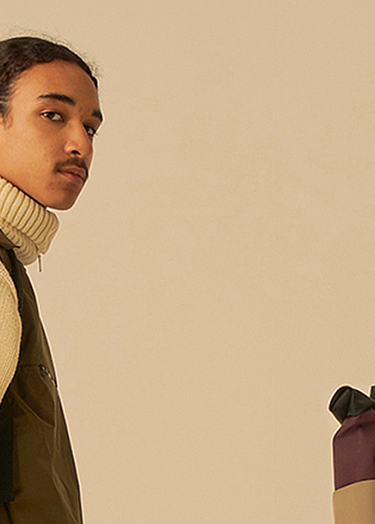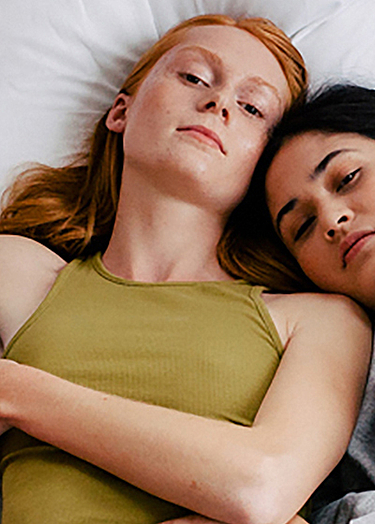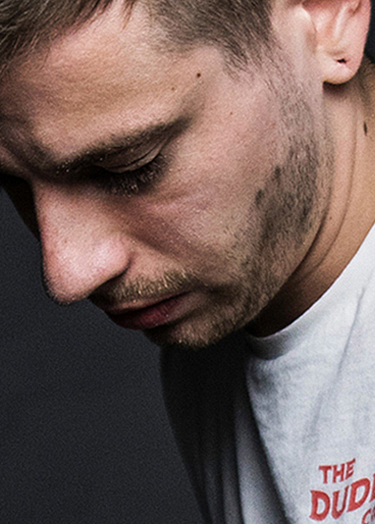202030
HUNDHUND: Transparency without exception

Isabel Kücke and Rohan Hoole spent enough time in India to get real insight into what textile production in the 21st century still looks like. The designer from Hamburg and the textile producer from Adelaide, Australia, met in India in the course of their jobs in the fashion industry, became a couple and moved to Berlin in 2016 with the idea of founding their own company. They are now forging a new path in terms of transparency and upcycling with their brand HUNDHUND.
The name (German Hund = dog) is a nod to the dogs that Isabel and Rohan used to feed on their way to work in India, and which are inevitably intertwined with their brand’s inception.
And whoever visits HUNDHUND’s premises in Lobe Block in Berlin – a green, irrigated tiered building, an architectural monument of the future that unites a world of arts – is first of all greeted by Ella, the corporate dog. After that, visitors can see everything that happens at HUNDHUND for themselves: the creative process in the atelier, the people in the office, and of course the shop.
Affordable fashion for the community.
HUNDHUND’s style is self-assured, cool yet timeless, and urban – a look that is also reflected in the shop, in the brand’s online presence and architecture. And community values crown the entire business. This means, for instance, that all the garments must be affordable for the like-minded community.
And HUNDHUND put transparency into practice without exception, to the degree that all the costs that go into working out the final sale price are precisely listed next to each garment in their online store. This allows the customer to understand what goes into creating a HUNDHUND piece and is something of a sustainability education for perceptive consumers. After all, Isabel and Rohan believe “when people understand the various factors that go into calculating the price, then they are happy to pay a fair price for a piece they love.”
Beautiful deadstock fabrics are transformed into new fashion.
HUNDHUND do not turn to India for their production. Instead, they produce their garments in small mills in Europe – in Lithuania, Poland, Portugal – and monitor the entire logistics of their supply chain.
What is especially interesting and quite unique is how they source the fabrics for their new collections. The couple travels to Italy and rummages through the mountains of fabrics that the major fashion companies and luxury brands have left over.
Designer Isabel is inspired by the largely excellent quality and stunning materials. Only when she has these fabrics in her hands and can see the prints and colours does she design the new HUNDHUND collection in their Berlin atelier. In this way, the deadstock fabrics are given a new lease on life and a completely new reinterpretation. One might call it “high-class upcycling” – the most direct and obvious form of reuse and waste prevention.
“Every season our label is a work in progress. And every day we try to make it that bit better.” We love it. // Uta Gruenberger
More Information
HUNDHUND
